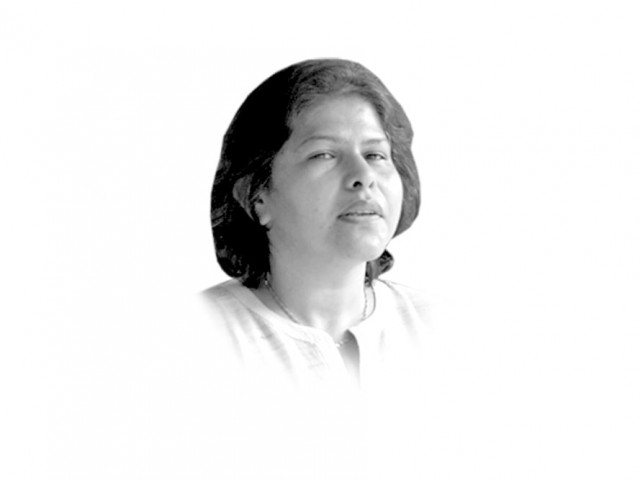Civilisational narcissism
When it comes to research our narcissism does not allow us to explore or extend our intellectual horizons.

It was heartening to hear the author not pose as the perfect repository of knowledge. He, in fact, claimed that this was a work in progress and he was open to his theory being questioned. But for a fruitful intellectual engagement, it is necessary for individuals, groups and societies to carry out research and have an enabling environment to do the same. Dr Haider’s secondary thesis was that Muslim societies have failed to do research using scientific methods. Not surprisingly, some of the best works on Islam and the Muslim civilisation has been done abroad and not inside the countries that claim to be part of the Muslim ummah. French scholar Louis Massignon’s work of four volumes on Sufi martyr Mansur Al-Hallaj (c. 858 – March 26, 922) is one of the many examples of the amazing research done so far.
Very recently, I came across a research project in Germany titled “Corpus Coranicum” in which a team of researchers has gotten together and is trying to construct the history of the text of the Quran using sources from the Muslim world. Of course, their only claim is that they are doing it from their own perspective. But then, the larger point is why should we grudge others when we fail to use our own resources to conduct research?
In fact, when it comes to research we are inclined towards wasting those resources because our narcissism does not allow us to explore or extend our intellectual horizons. Despite our claim that the Muslim civilisation has produced some of the best scientists, mathematicians, historians, there is no inquiry into why we ceased the process of scientific research and experimentation.
In Pakistan, which is considered the fortress of the Muslim civilisation, there is little done in the field of education and research. With a focus on quantity versus quality, we keep establishing institutions without producing results. Our fascination with establishing infrastructure means a greater number of universities and research institutions which are not equipped (in terms of manpower) to conduct scientific research.
I can comfortably speak about social sciences in this country which has died because of the lack of trained and capable human resources. Despite our emphasis on producing new doctorates and institutions, most of the work done is of poor quality. The state refuses to understand that good quality research can only be produced when there is an enabling environment. This means independence of academic and research institutions and allowing them to produce work without fear of retribution lest they stray away from the state’s ‘strategic’ perspective.
It’s a shame to see public money going to waste in the shape of numerous research institutions, especially in the capital city. Many have become places to accommodate retired bureaucrats. It is absolutely ludicrous to require security clearance for researchers from military intelligence agencies. This subservience of social science research to the state’s narrow security objectives is awful. Not to mention how the security apparatus has established new think tanks — with the label of ‘private sector’ on them — which only further the work government institutions are already doing.
Managed by people with fake PhDs or those whose main credential is their closeness to the security establishment, even new research centres have turned into mere intellectual ‘safe houses’. The social science departments of public sector universities serve as recruitment centres for foot soldiers. These are young students who move from an unscientific university environment to an equally bad research environment. Good contacts or empathy with the deep state, being a female, having a reasonably good command of English and a mind uneducated in social science methodology are some of the basic criterion for getting a job in these numerous old and new think tanks.
No wonder, we suffer from national and civilisational narcissism.
Published in The Express Tribune, December 26th, 2010.















COMMENTS
Comments are moderated and generally will be posted if they are on-topic and not abusive.
For more information, please see our Comments FAQ